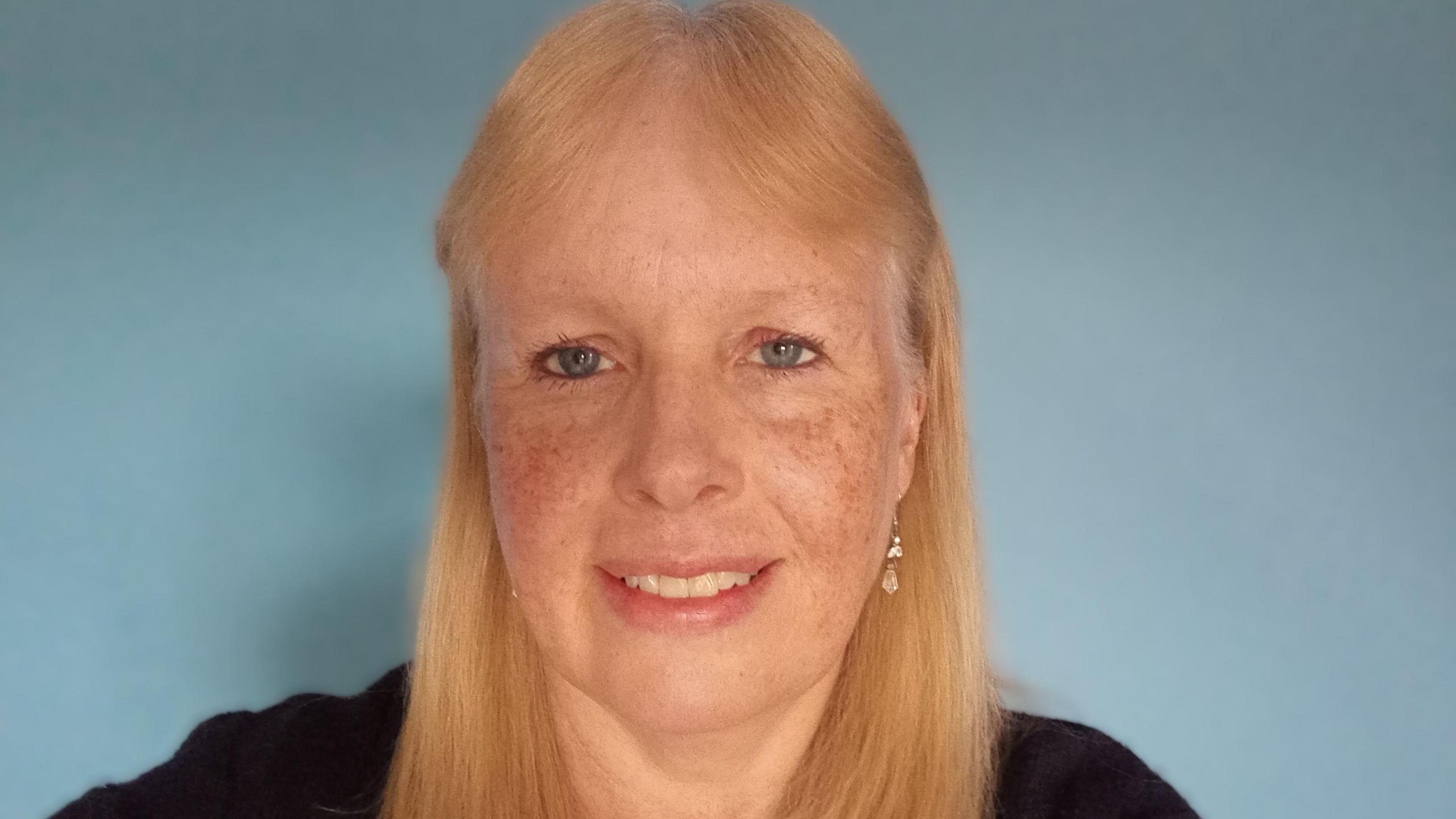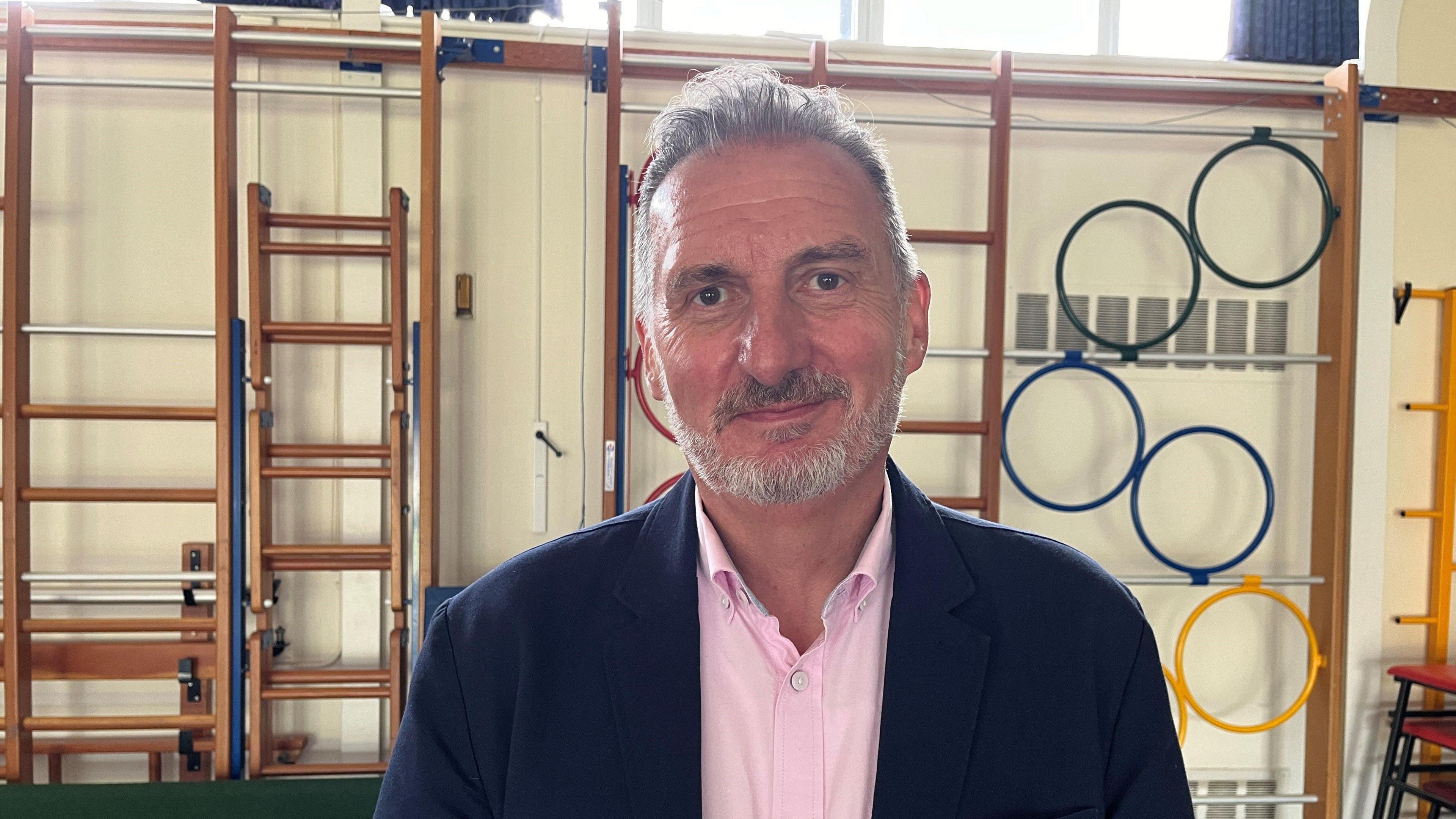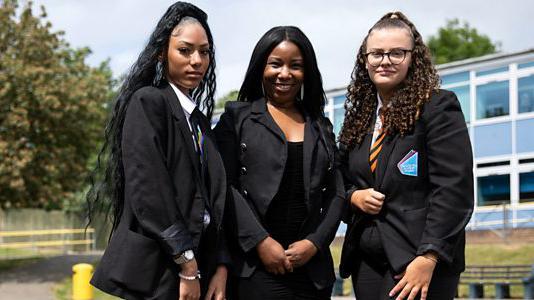'I was hit, kicked, bitten and sworn at by pupils'

Sarah decided to walk away from teaching after experiencing violence
- Published
“I saw children trash a whole office or a whole classroom, throwing chairs and tables around," says a teaching assistant who has now quit the profession.
Sarah from Sussex, who worked in a primary school, said: "I was hit, kicked, bitten and sworn at by pupils."
There were 52,237 suspensions in England for children physically assaulting an adult in school in 2022-23, which is 33% higher than the 38,986 in 2021-22.
The government says there is no place for violence in our schools and it is a priority that teachers and students are safe.
Sarah told BBC South East that the decision to leave wasn’t easy.
“I think it was my husband asking me if I felt safe, and me answering that no I didn’t, and him saying that he was worried about me and I think realising that this isn’t going to stop.”
Another teacher who worked in the South East, but doesn't want to be named, told the BBC: "I've seen a student slap a teacher in the face. They threatened me with chairs, I've seen several incidents of physical assault by pupils on teachers."
Overall suspensions across England have reached a record high, with 790,000 in 2022-23 - almost one for every 10 pupils - which is 36% higher than the previous record, 578,000 in 2021-22.
Persistent disruptive behaviour was the most common reason, accounting for 48% of all reasons given for suspension and 39% for exclusion.
Suspended pupils must stay out of school for a fixed period, while those excluded are banned from their school permanently.
Teachers 'filling gaps'
Dr Patrick Roach, general secretary of the NASUWT union, says he is worried this will force teachers out of the profession for good.
"No teacher should expect to go to work expecting to be punched or kicked at work, so if it comes to it, we will also take industrial action to protect the safety of our members, so that they can continue teaching in the classroom."
Last year teachers at a secondary school in Kent went on strike over threats and violence.
Nearly one in five teachers in England who took part in a survey commissioned by the BBC had been hit by a pupil this year.
A greater proportion of primary and secondary teachers reported pupils fighting, pushing and shoving compared with two years ago.
The Department for Education (DfE) says it has invested £10m in behaviour hubs, external to support schools.

Jonathan Newport says his company helps train teachers to de-escalate situations
Some schools are using external companies to carry out de-escalation training with staff to reduce the risk of violence.
Jonathan Newport from Team Teach says he encourages staff "to change mindsets".
"Thinking about your body language, thinking about your tone of voice - it's where you put yourself in the room," he said.
Shears Green Junior School, in Gravesend is one school which uses external behaviour specialists as a preventative measure.
Matt Paterson, the school's head teacher, said: "As staff we try our hardest to try to support the child in identifying those reasons for that behaviour, and de-escalating them so they come out happier and ready to learn.
"We have got to be better equipped to deal with the wide range of behaviours and needs we are seeing," he said.

Head teacher Matt Paterson says a welfare bus helps support children with emotional challenges
The Association of School and College Leaders' general secretary, Pepe Di'Iasio, said the new data, external reflected the "increasingly complex needs and challenging behaviour" in schools and across wider society.
"Early intervention is key to solving this issue - but schools lack the resources to offer specialist support and local services have become overwhelmed by the increased demand," he said.
A DfE spokesperson said: “All schools are required by law to have a policy in place to encourage good behaviour and we have published guidance to support school leaders and staff.
"Schools can use sanctions as a measure to improve behaviour and in the most serious cases, suspensions and permanent exclusion may be necessary to ensure that pupils are protected from disruption and to maintain safe environments.”
Follow BBC Sussex on Facebook, external, on X, external, and on Instagram, external. Send your story ideas to southeasttoday@bbc.co.uk, external or WhatsApp us on 08081 002250.
Related topics
- Published28 March 2024

- Published7 September 2023
